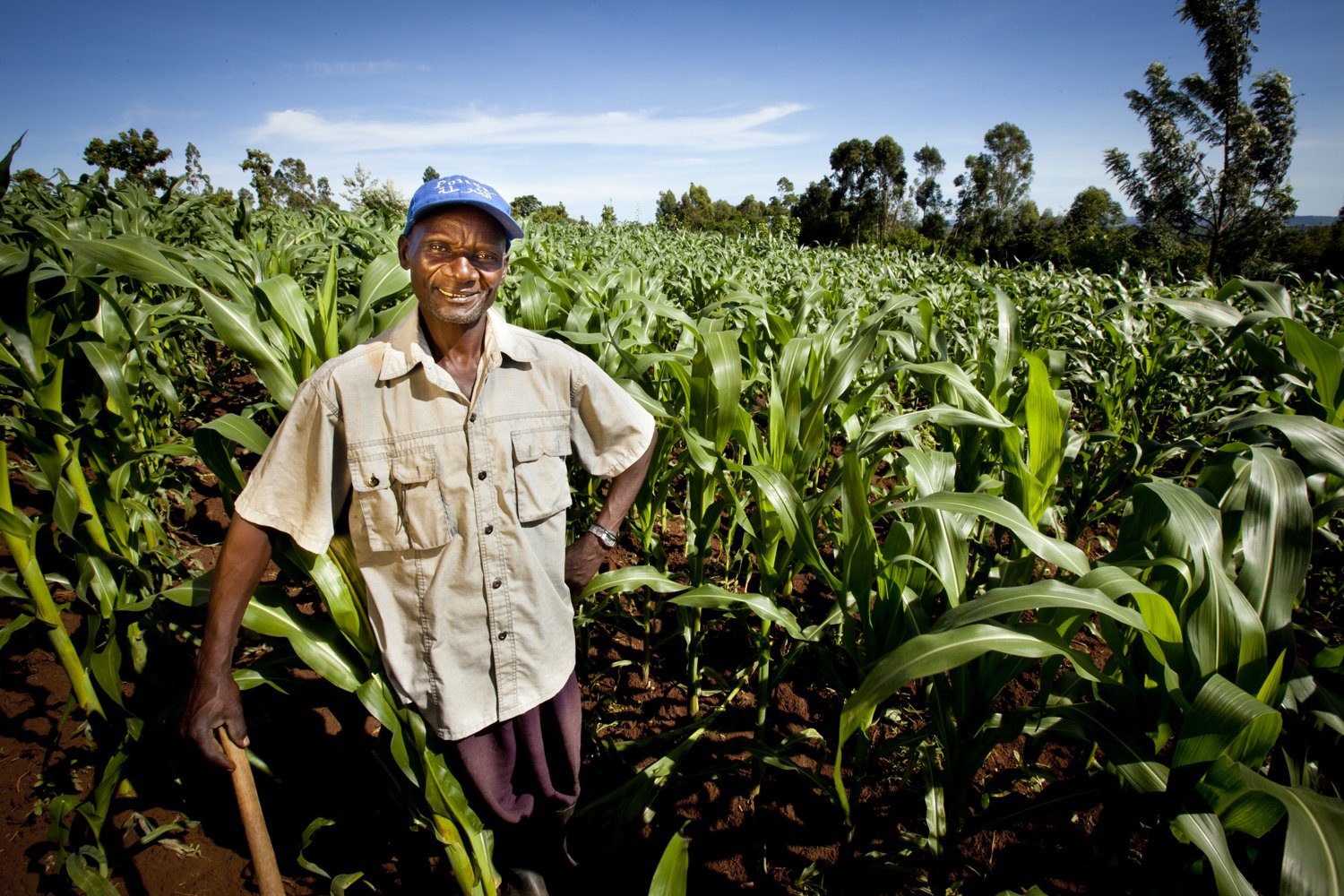Nuru proudly focuses on being local. Nuru’s training curricula are designed to optimize the present capabilities, opportunities and motivations of the farmers they serve. For example, Nuru Kenya tested multiple varieties of improved dairy feed grass with direct input from Kenya Agricultural & Livestock Research Organization (KALRO) and champion farmers from local Nuru-supported farmer cooperatives. After numerous trials, this multi-stakeholder group came together to promote the production of a hybrid brachiaria feed grass, called Cobra.
Rebecca Mulebe from Maeta Farmers Cooperative (pictured above), is a champion farmer in her community. She is helping to lead experience sharing visits at her household to encourage her neighbors to adopt techniques in forage cultivation and preservation. The Cobra grass was integrated into training on feed management and included on the checklist of activities for extension agents. Best practices included dry season preservation as hay (pictured above) to prevent drops in milk yield during lean seasons.
Nuru’s philosophy of training and extension is rooted in servant leadership and sustainability. The first step is to identify emerging and established local leaders, like Rebecca. These come from different societal levels and experience stages including farmer organization members, community health workers, cooperative officials, teachers, religious leaders, as well as district government officials, partner NGOs and the private sector. Nuru’s Leadership Program develops the capacity of the people from the parts of local society that influence the day-to-day activities of rural households . These local people are Nuru staff, cooperative managers, and regular farmers who are the trainers of trainers and extensionists that deliver training curriculums. All materials are adapted to local conditions and needs to cover topics ranging from animal husbandry, crop production, climate-smart land management, financial literacy, to other activities important to farmers’ everyday lives.
For more on the above dairy commercialization program above, please visit here.


